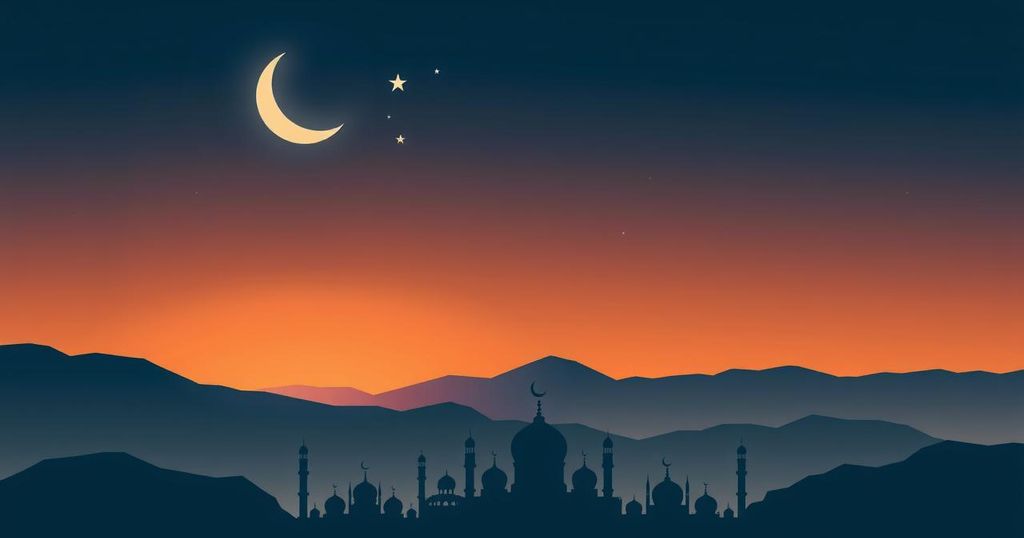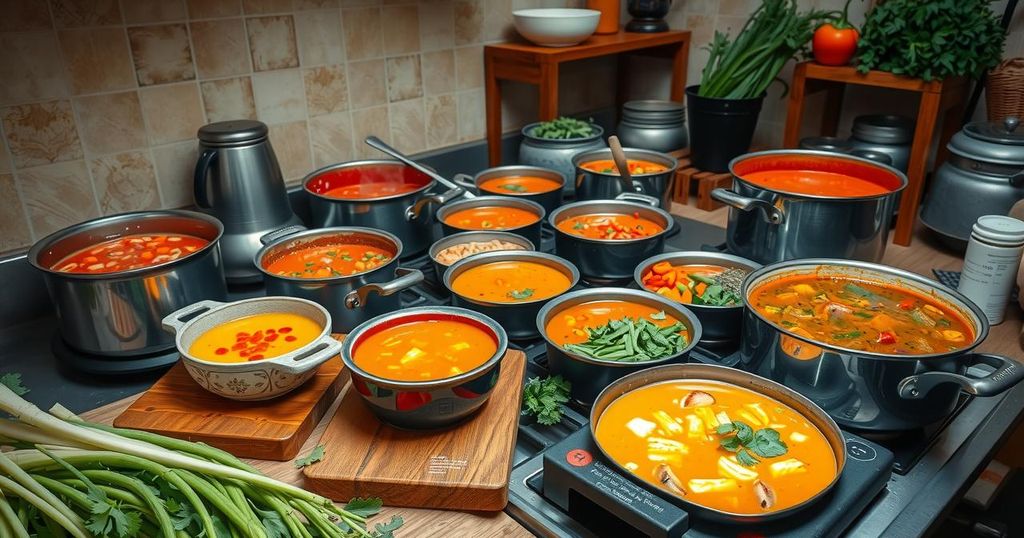Ramadan Observance: Reflections from Afghanistan to New Zealand
Muslims in New Zealand prepare for Ramadan, starting with approximately 14-hour fasts. The lunar calendar determines fasting days, while the Islamic year shifts backward yearly. This influence implies that in some years, Muslims will observe Ramadan during New Zealand’s summer. Reflections by Afghan immigrants reveal the contrasting experiences of fasting amid comfort versus hardship, emphasizing appreciation for food and spirituality during this holy month.
Kiwi Muslims are preparing to commence their first fast of Ramadan, which began on Sunday, lasting approximately 14 hours, a longer duration than in the past two decades. The Federation of Islamic Associations (FIANZ) announced the start, noting that the Islamic calendar is lunar-based, and the sighting of the new moon indicates the commencement of fasting from dawn until sunset for 29 or 30 days. Eid al-Fitr celebrations follow the conclusion of fasting after the appearance of the new moon.
The Islamic calendar shifts backward by about 10-12 days annually according to the Gregorian calendar, resulting in future Ramadan observances coinciding with New Zealand’s summer. In 2030, there will be two occurrences of Ramadan within the year, as anticipated. Although Auckland’s fasting duration is not as extreme as in countries like Iceland, where fasting stretched to 17 hours, insights from the Auckland-based couple, Shookria and Enayatullah Basir, reveal profound reflections on the nature of Ramadan.
Originally from Ghazni, Afghanistan, Enayatullah observes that fasting poses considerable challenges for families in Afghanistan even today. He states, “Here, we have a lot of comfortability, and we have plenty of food … You don’t really feel, in my point of view, the true test of Ramadan. We don’t feel that much hunger.” This perspective underscores the contrasts between experiences of Ramadan in prosperous nations versus those enduring hardship.
Enayatullah reminisces about life in rural Afghanistan, where the absence of clocks often led families to miss breakfast before dawn, resulting in a full day of fasting without food. He recounts how community roosters played a crucial role in signaling the time for suhoor, the pre-dawn meal. “If the rooster [didn’t make a noise], you had to take your fast without eating anything,” he says, highlighting the communal aspect of Ramadan in earlier times.
Shookria adds her observations regarding food scarcity during Ramadan in her childhood, stating, “I remember we didn’t have meat. We used to have meat once a month … and that was it.” This simplicity of sustenance signifies Ramadan’s essence, focused on survival rather than indulgence. She articulates the importance of appreciating the food one has, illustrating the transformative importance of this holy month.
Beyond abstaining from food, Ramadan is a time for Muslims to deepen their spiritual practices, engage in prayer, read the Qur’an, perform acts of charity, and seek both forgiveness and reconciliation with others. This month is considered sacred as it marks the revelation of the first verses of the Qur’an to Prophet Muhammad over 1400 years ago, reinforcing fasting as one of the faith’s five pillars, obligatory for those capable of observing it, with exceptions for children, the elderly, and the ill.
In summary, Ramadan serves as a significant period for Muslims worldwide, encompassing fasting, spiritual reflection, and community engagement. Observers in New Zealand face unique challenges, yet they draw strength from their traditions. This holy month, originating in hardship, ultimately emphasizes gratitude, patience, and the importance of faith amidst varying circumstances. The shared experiences of fasting enhance communal bonds and deepen spiritual connections for believers.
Original Source: www.rnz.co.nz




Post Comment